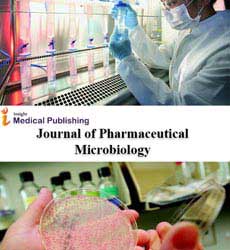Abstract
Wearable Biosensors for detection of Biomarkers and Disease Monitoring
Since 19th century, an increase in population and prevalence of chronic diseases results in a continuously rising healthcare monitoring. Currently, the healthcare system is undergoing a vital transformation from the traditional hospital-based system to an individual-based system. Introduction of wearable technologies potentially contributing to bring a change in the era of mobile health with respect to providing real-time health monitoring and improved health management. For two decades, wearable technologies are getting widespread in healthcare and biomedical monitoring empowering quantitative analysis of critical biomarkers for disease monitoring, real-time health monitoring and biomarker measurements noninvasively such as saliva, blood, sweat etc. Recent developments are focused on design an electrochemical and optical biosensor, which capable to provide non-invasive monitoring of biomarkers bacteria and hormones etc. Integration of multiplexed biosensing, microfluidic sampling and transport systems integrated with flexible materials allow attachments of sensor on body surface with an improved wearability and simplicity. These wearables hold promise and capable of higher understanding and establishing correlations between analyte concentrations within the biological fluids. This results in timely diagnosis, treatment, and control of medical conditions. Although, an accurate and reliable real-time sensing of physiological conditions implying wearable sensors have a broad impact on daily human lives. However, cohort validation studies and performance evaluation of wearable biosensor are needed to underpin their clinical acceptance.
Author(s):
Atul Sharma
Abstract | Full-Text | PDF
Share this

Google scholar citation report
Citations : 36
Journal of Pharmaceutical Microbiology received 36 citations as per google scholar report
Abstracted/Indexed in
- Google Scholar
- Secret Search Engine Labs
Open Access Journals
- Aquaculture & Veterinary Science
- Chemistry & Chemical Sciences
- Clinical Sciences
- Engineering
- General Science
- Genetics & Molecular Biology
- Health Care & Nursing
- Immunology & Microbiology
- Materials Science
- Mathematics & Physics
- Medical Sciences
- Neurology & Psychiatry
- Oncology & Cancer Science
- Pharmaceutical Sciences

